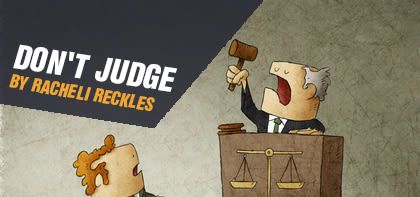
Don’t Judge
Before you condemn someone, slow down – you don't know all the facts. The very person you're judging so severely could really be your best friend on earth…

I read a true story in a pamphlet from a local organization called, “Mishmeres Hashalom,” which is based on the teachings of the Chofetz Chaim. Rabbi Yisrael Meir Kagan’s z”l teachings on the laws of forbidden speech are the foundation upon which everyone should base the way they speak to others. It is recommended that a person learn two laws of forbidden speech every day. Otherwise, they are sure to transgress those laws.
The following story absolutely blew me away because it is such a powerful example of why we should never judge a situation until we know all of the facts. Even after we know all of the facts on paper, we can’t say we know everything, because we cannot take into account the person’s thoughts and intentions during the act that we are judging. Therefore, we can’t judge. Period.
Here goes…
A young Orthodox man named Eliezer had seen a local ad looking for a bone marrow donor for a leukemia patient. Without thinking much about it, he responded to the ad and went in for a blood test. A few days later, after nearly having forgotten all about it, he received a phone call notifying him that he was  a match for the patient.
a match for the patient.
Before he could comprehend what was happening, he found himself sitting in front of the doctor, who was explaining the entire procedure to him. In a daze, he left the hospital, and suddenly found himself sitting on the couch, telling his father what he had done.
His father remained silent until Eliezer described the emotional meeting he had had with the patient, Mr. D. Without any warning, the father suddenly began shaking with anger. His face turned blood red and he rose up from his chair, barely managing to control himself: “UNDER NO CIRCUMSTANCES WILL YOU HELP SAVE THIS PERSON’S LIFE!!”
His father’s inexplicable reaction left Eliezer dumbfounded. He tried to calm his father and explain that this is a Jewish life he’s saving, but his father wouldn’t hear of it. Eventually, the father calmed down enough to tell him the reason for his reaction.
“When I was in the Holocaust,” he reluctantly began, “I was assigned to work in a factory that was set up within the ghetto where I lived. From morning to night I worked so I could receive a dry piece of bread and watery soup. The Germans did not know that I had hidden my son with us in the factory. They thought they had cleared the ghetto of all children.
During the day, he hid in a small wooden crawlspace in the ceiling. At night we would release him from his tiny prison, and he would sneak into the food storage area that was reserved for the Germans, and bring back whatever he could. Sometimes he would sneak into the offices and destroy whatever he could get his hands on. I was proud of my son, yet I feared for his life. But, I couldn’t stop him.
There was a Jew who was held in high esteem by the Germans, because he was an expert at manufacturing bombs. All of us were very wary of him and did not get close to him. One day, out of the blue, he stormed into our factory, waving a club in his hand. Without warning, he began to swing his club again and again at the crawlspace, exactly where my son was hiding. My blood froze. Before long, the hole was large enough to cause my son to fall into his arms.
He dragged my son outside and closed the door. He stole my little boy … my baby boy… A minute later, I heard two gunshots. He killed my son! I will never forgive him! He took the most precious thing I had left!”
Eliezer was shocked into silence. He had no idea what to do now.
After many attempts by the family and a local rabbi to convince the father that saving a life is of supreme importance, the father finally agreed to meet the father of Mr. D. Maybe it wouldn’t be the same Mr. D., after all, the family told him.
As soon as Eliezer’s father saw the senior Mr. D., he nearly fell to the floor in a faint. “IT’S HIM! IT’S HIM!” he screamed, as his body began to shake with anger.
“Let me explain,” Mr. D’s father began. “I know you are angry with me. All these years I have tried to contact you, to tell you what really happened.
The Germans wanted to kill your entire group because they found out about your son’s actions. I volunteered to kill only your son, in order to save the rest of the group. As I held him in my arms and took him outside, I realized that there was no way I could kill him.
I decided that the only way to save him was to help him escape. So I killed the two Gestapo guards and escaped with him to a nearby convent. I left him there and returned to the ghetto. The Germans were rabid with anger, but because of my expertise, they couldn’t kill me. They decided to maim me instead.
After the war, I returned to the convent and took back the boy, who I assumed was orphaned. As I had no children of my own, I raised him as my own son.
I did all that I could to locate you, to tell you that your son – our son – was still alive… Now you can see why Eliezer is a perfect match – they are brothers.”
Tissues, anyone?



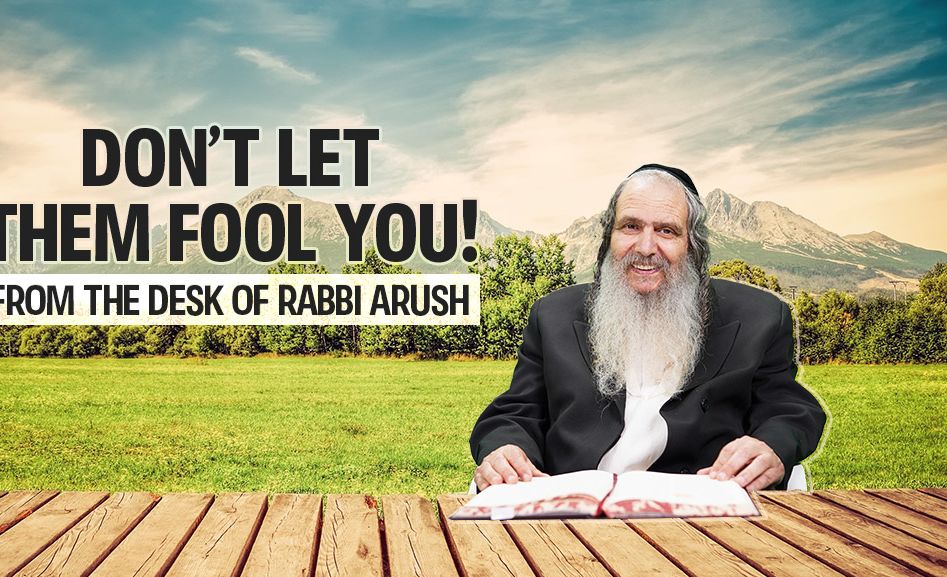



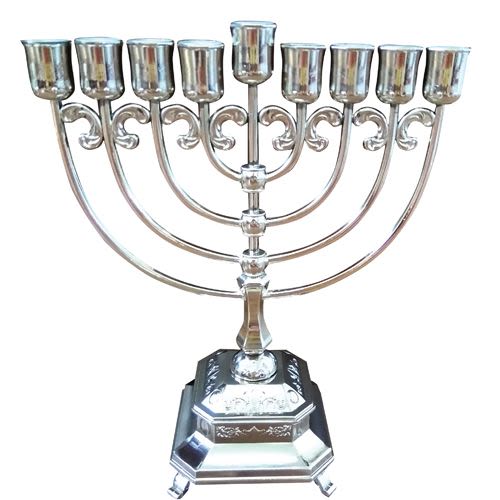
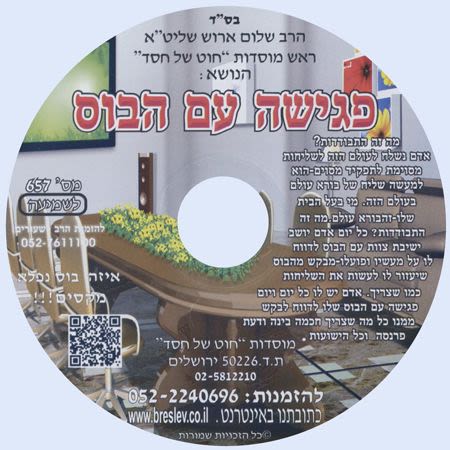

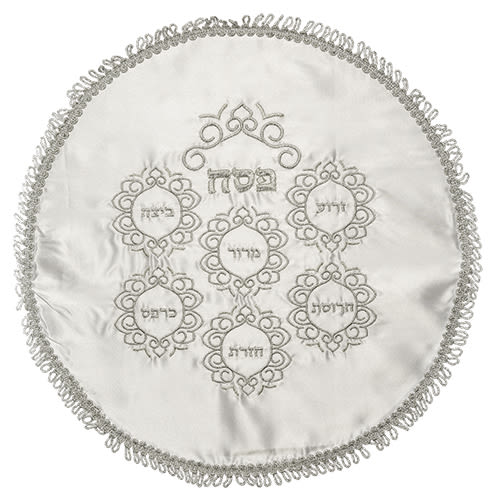

6/20/2018
I do not believe that this is a true story.
It is a shame that many holocaust stories have been fabricated in order to create emunah, and this appears to be one of them. IMHO, it is in the category of mitzva habaah al yiday avera and maybe worse since we proclaim daily, haShem Elokaychem emet.
6/20/2018
It is a shame that many holocaust stories have been fabricated in order to create emunah, and this appears to be one of them. IMHO, it is in the category of mitzva habaah al yiday avera and maybe worse since we proclaim daily, haShem Elokaychem emet.
5/30/2016
One of the most inspirational stories I ever read
So inspiring!